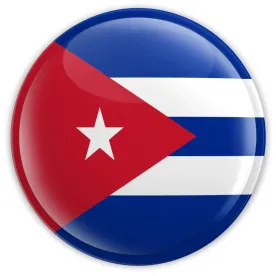On March 19, 2019, a never-before-used Cuban embargo measure goes into effect that makes it possible for U.S. claimants to sue the Cuban government in U.S. courts for confiscated Cuban property. The measures could be further expanded on April 17, 2019, to permit lawsuits against non-Cuban entities operating in Cuba.
Since its enactment, Title III of the 1996 Cuban Liberty and Democratic Solidarity (LIBERTAD) Act has threatened to be a potent weapon against entities that do business in Cuba by providing U.S. nationals with a private right of action in U.S. federal courts against entities that “traffic in property which was confiscated by the Cuban Government on or after January 1, 1959.” Of course, the United States has never implemented that private right of action because every president since Bill Clinton has postponed the enactment of Title III for consecutive six-month periods, in part because many foreign governments objected to the idea that non-U.S. companies could be sued in U.S. federal court because of their commercial dealings with Cuba.
Therefore, it was a surprise on March 4, 2019, when U.S. Secretary of State Pompeo announced a partial exception to decades-long waivers of Title III of the 1996 Cuban Liberty and Democratic Solidarity (LIBERTAD) Act. The exception is effective beginning March 19, 2019, and provides a cause of action for certain U.S. nationals against Cuban entities and sub-entities (but only those listed on the State Department’s Cuba Restricted List (CRL) (see Department of State Nov. 14, 2018, press release here) that “traffic in property which was confiscated by the Cuban Government on or after January 1, 1959.”
The eligible claims generally fall into two categories:
(1) claims by persons who were U.S. nationals at the time of the Cuban revolution in 1959 from whom the Castro regime expropriated property in Cuba (who have had their claims certified through the Foreign Claims Settlement Commission under the International Claims Settlement Act of 1949); and (2) claims by persons who were Cuban nationals at the time of the Revolution from whom the Castro regime expropriated property, and who subsequently became naturalized U.S. citizens.
Collateral Impact
Leading up to the announcement, the Trump Administration had bucked the decades-long trend of six-month presidential waivers on the implementation of Title III that have taken place since LIBERTAD was enacted in 1996. Specifically, on Jan. 16, 2019, Secretary of State Pompeo announced a truncated 45-day waiver, alerting Title III-watchers that a change might be brewing.
It is currently unclear what the fallout would be if Title III were fully implemented (hence permitting suits against non-Cuban companies investing or operating in Cuba). The governments of Canada, Mexico, and others have implemented anti-blocking statutes to counter the U.S. embargo of Cuba, and have vociferously objected to the U.S. codifying a mechanism whereby private U.S. companies or individuals could sue in federal U.S. courts non-U.S., non-Cuban corporations who are currently investing and/or doing business in Cuba. The objections from allied governments appear to have worked to date – the statute has never been fully implemented.
But, with this recent pronouncement, it remains to be seen whether the Trump Administration will continue the 30-day waiver beyond April 17, 2019, or go for full implementation of Title III, which will send a ripple effect through U.S. diplomatic relations around the globe.
Even under the current limited exception, however, we expect a collateral impact on non-Cuban entities and governments. For example, many of the Cuban entities and sub-entities on the CRL have received investment from non-U.S. companies, which in some cases may even be joint-venture partners with non-U.S. foreign entities. Although the State Department has publicly indicated that the Title III exception is not intended to affect European companies that are currently doing business in Cuba, given the nature of entanglements between Cuban entities and European investors and partners in certain industries in Cuba – the hospitality sector in particular – European investors may face at least some collateral impact (even if Title III is never expanded to allow suits directly against non-Cuban entities). For example, Cuban entities might seek indemnification from their non-Cuban joint-venture partners, and assets flowing between the Cuban and non-Cuban joint venture partners might be subject to attachment or garnishment in the enforcement of U.S. judgments of Title III lawsuits.
Some Key Questions Raised by the Title III Waiver Exception
-
Will Cuban entities and sub-entities even appear in actions brought against them in U.S. federal courts? If not, how will U.S. claimants enforce default judgments against the Cuban entity? In the case of default judgments, it is possible that U.S. claimants might seek to attach or garnish assets or funds of the Cuban Government outside of Cuba, or money owed or invested to the Cubans from sources outside Cuba.
-
Will U.S. courts recognize claims against all of the CRL entities and sub-entities? Or only those who are directly engaged in commercial activities? While Title III indicates that no U.S. court shall decline to make a determination on the merits based on the Act of State Doctrine, it remains to be seen how U.S. courts might apply Foreign Sovereign Immunity Act and whether they will view suits against Cuban Ministries the same as state-owned entities engaged in commercial activities, e.g., Grupo del Turismo Gaviota (Gaviota), which directly owns and operates many hotels in Cuba.
-
How many actual suits could be filed? To have a claim, the cause of action would have to relate to one of the CRL entities, and there is no clear indication how many such claims could exist.
-
How many claimants of uncertified claims (i.e., former Cuban nationals) have sufficient evidence, documentation, and information to successfully bring suit under Title III against a CRL entity? Cuban-American families whose properties were expropriated by the Cuban government would be required to provide evidence of their claims. Many of these families do, in fact, retain such records, and expectations are that many would file lawsuits if Title III is relaxed.
-
What motivation do U.S. corporate claimants have to sue a CRL entity (or non-U.S. entities under expanded Title III)? Given the difficulty that claimants will face in collecting from Cuban defendants, corporate claimants will likely consider how claims under Title III could impact (1) a company’s rights to settled claims compensation by the Cuban government in the future and (2) a company’s business and investment opportunities outside Cuba (relative to European, Canadian, Mexican counterparties, who may be directly or collaterally impacted by the suit). Notably, Title III contains a subject matter preclusion provision, meaning any U.S. national who brings an action under Title III may not bring any other civil action or proceeding by reason of the same subject matter (Section 302(f)(2)(A)). Depending upon how long a Title III suit against a CRL entity takes to adjudicate, it is theoretically possible that a U.S. claimant would be precluding itself from recourse against a non-Cuban entity if Title III full implementation goes into effect after the case is adjudicated.
Policy Considerations
While the Trump Administration is attempting to use the limited exception as leverage over the Cuban regime, the full policy impact of the Title III limited implementation is difficult to predict. It is safe to say there will likely be considerable fallout. The Cuban government is likely to retaliate in any number of ways, including diplomatically (directly or indirectly), legally (by, for example, eliminating from compensation consideration in government-to-government negotiation claims by any U.S. claimant who files suit against a CRL entity), and/or commercially (by blocking, for example, imports of permissible U.S. agricultural and medical commodities).
Conclusion
It remains to be seen whether the Trump Administration will continue suspension of the remaining provisions of Title III under successive 30-day (or other duration) waivers, or decide on or by April 17, 2019, to fully implement Title III, allowing U.S. claimants to sue even non-Cuban entities engaged in business in Cuba.
What is certain is the prospect of potential Title III enactment could cause U.S. and foreign companies to withdraw from engagement with Cuba. Even if some European or other foreign entities maintain skepticism about the impact of the changes to Title III, the mere threat of lawsuits in a U.S. federal court may be sufficient to slow down or cause further evaluation of doing business with Cuba.
Non-Cuban investors in Cuba would be wise to assess whether their Cuba operations are located on or otherwise involve property subject to certified Cuban claims (1) to ascertain the potential collateral impact of possible U.S. claimant suits against CRL entities; and (2) to be prepared in the event April 17 brings about a full enactment of Title III.





 />i
/>i

